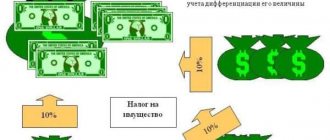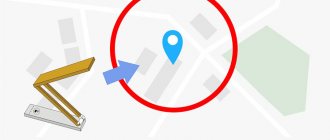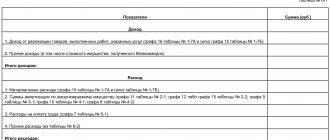No registration
Tax liability - a fine of 10% of income received from a business without registration, but not less than 40 thousand rubles.
The tax office is directly interested in registering every business. If “illegal” activity is detected, she has the right to fine her 10,000 rubles and charge additional income tax by calculation.
Administrative liability - a fine from 500 to 2,000 rubles.
The tax office may submit the application to the court, which will bring the violator to administrative liability.
Criminal liability - fine, compulsory labor or arrest.
Criminal proceedings threaten only those unregistered entrepreneurs who “play big” - damage to the state or income received must be more than 1,500,000 rubles. Possible punishment:
- a fine of up to 300,000 rubles or in the amount of income for a period of up to two years;
- compulsory work up to 480 hours;
- arrest up to 6 months.
Internet trading
To make it as easy as possible for the buyer to access the product, select it, and purchase the process itself, the seller creates a website on the Internet. Such trade has a number of undoubted advantages for both the client and the supplier:
- No extra expenses (renting premises, utilities, hiring staff, registering separate divisions, etc.) = lower selling price, flexible pricing policy, ability to provide discounts.
- Managers can be hired anywhere in the world; they can easily work remotely, having only access to the Internet. Typically, special systems are used to accumulate information and organize communication between different departments of the company and with clients (CRM systems).
- There are no intermediaries. The seller has the opportunity to transfer the goods directly to the buyer.
- Wide range of payment options. Prepayment: cards, electronic wallets, points (the seller’s own or its partners), installments, credit. Payment upon receipt: by all listed methods and in cash.
- Advertising. The site can be promoted on social networks and on thematic resources. The buyer can immediately get to the page with the product he needs (targeting is used).
- Access to an unlimited number of customers. The site allows everyone, anywhere and at any time, to place an order for goods, while choosing a convenient form of payment and delivery. This significantly increases sales volume compared to a regular outlet.
The supplier usually delivers the goods in several ways: by its own or third-party service, couriers, through pick-up points (including automated ones), and by mail. In this case, the cost of delivery may be included in the cost of goods or allocated as a separate service.
UTII
As is known, imputed tax and patent have a number of restrictions on the type of activity. It is unacceptable to use UTII for an online store; this follows from the definition of retail trade and exceptions from it specified in Article 346.27 of the Tax Code of the Russian Federation.
True, thanks to some letters from the Ministry of Finance and arbitration practice, it turned out that the very use of the site in trade does not interfere with the use of imputation. Let’s say, if on the website you can only get acquainted with the assortment, read about the properties of the product, and pay for the product itself and receive it at the outlet, then you can use UTII. Although in this case there is no need to talk about an online store, because the site will only have an information function.
By the way! Sometimes the Ministry of Finance demonstrates a different point of view: even when paying through the website, you can retain the right to UTII.
Patent
The approach to the patent tax system is similar. Direct sale of goods through a website, as well as trade through catalogues, samples, by mail or telephone, does not qualify as retail trade for patent purposes.
It should be noted that at the moment the direct interpretation of the law (clause 2.3 of article 346.27 and clause 4 of clause 6 of article 346.45 of the Tax Code of the Russian Federation) is such that if there are marked goods in the assortment, an organization or individual entrepreneur is deprived of the right to apply a patent or UTII in principle, and not only in relation to this group of goods. I hope that the wording will be revised, although, most likely, legislators understand perfectly well what they wrote, and this is not an accident.
Self-employed
The still new status for individual entrepreneurs and individuals – self-employed – raises many questions. Unfortunately, contrary to expectations, in 2020 this regime was not introduced throughout Russia, as expected, but only in 23 regions.
Federal Law No. 422 of November 27, 2018 does not establish specific types of activities, but only criteria that do not allow the application of this regime. Those. the law does not indicate rules, but exceptions. Let's see in what cases the self-employment regime cannot be used and what this means for online trading:
- Trade in excisable or subject to marking goods is carried out. These include fur products, medicines, alcohol and other goods. If this is a trade item, then an online store is not for you or you will have to choose a different tax regime.
- Resale of goods is carried out. Those. If you did not make the item for sale yourself, then you do not have the right to apply the regime.
- There are workers. Self-employment, by definition, assumes that a citizen with or without individual entrepreneur status works independently, without involving employees under employment contracts. If you hire a manager for consultations and placing orders, an administrator for a website, or your own courier for delivery, you lose the right to pay tax on professional income.
Note! Federal Law No. 422 indicates the impossibility of applying NAP only if there is an employment relationship; a self-employed person can conclude a GPC agreement. For example, if you register as an NAP payer and engage a web designer to create a website under a service agreement, then the right to the regime is not lost.
- Intermediary trade is expected. A self-employed person cannot be a commission agent, agent or attorney.
- An individual entrepreneur who applies another special tax regime or conducts activities subject to personal income tax wants to switch to NAP. Exception: if an individual entrepreneur refuses to use the simplified tax system, unified agricultural tax, he is deregistered as a payer of UTII or a patent and remains exclusively a payer of NAP.
- Revenues this year exceeded 2.4 million rubles. Income restrictions are inherent in almost all special regimes, so there is nothing surprising here.
USN and OSNO
So, the most suitable and profitable mode for distance trading via the Internet is a simplified system. Depending on the specifics and the possibility of confirming expenses, a “income” or “income-expenditure” simplification is selected.
Large selling companies, of course, also use OSNO, although working with VAT is usually not the most profitable option for small and medium-sized businesses. After all, entrepreneurs sometimes purchase goods from individuals or purchase them as individuals in small wholesale (sometimes this is more profitable than buying on behalf of an organization or individual entrepreneur).
Note! When purchasing goods abroad (in Europe, the USA, China, etc.), the obligation to calculate and pay VAT arises for all taxpayers, even those in special regimes. On OSNO you can then receive a VAT deduction, but payers of the simplified tax system will have to include such costs in the cost of goods, because VAT is not reimbursed to them.
The retail outlet in Moscow is not registered
Organizations and entrepreneurs who trade in Moscow must pay a trade tax. To do this, you need to register no later than 5 days from the start of trading.
Missing a deadline: fine for individual entrepreneurs - from 100 to 300 rubles, for LLCs - from 300 to 500 rubles. In addition to this, another fine is 200 rubles.
Trading without registration: a fine of 10% of revenue for the entire time, but not less than 40 thousand rubles.
Read more about trading fees in our articles:
- Trade fee;
- New trade tax benefits;
- How to register for trade tax with the help of Elba;
- Answers to all questions about the trade fee.
Pros and cons of projects
Of course, domestic stores are happy about this turn of events. According to the same AKIT, the bill will minimize the difference in prices to five percent, and then Russians will prefer to buy “at home” in order to more quickly and reliably resolve issues related to the guarantee of goods or their replacement and return.
For buyers, the innovation will result in inconvenience - most likely, foreign stores will simply raise prices by the amount of the duty, and accordingly, all goods will rise in price by at least 18%. According to representatives of AKIT, this is not bad - because then Russian producers will be able to equalize prices with foreigners.
Independent experts also consider this decision not entirely successful and far-sighted, since foreign online stores will need to pay tax twice – both at home and for Russia. As an alternative solution, it is recommended to create warehouses in the country according to the “business-to-business-customers” system, where foreign organizations will be able to bring goods “in bulk” and pay tax once for everything.
Video - Shopping in online stores may become more expensive
Registration of individual entrepreneur or LLC
Have you decided to register your business and work officially, but don’t know where to start? Start by preparing documents for registration. You can handle this on your own. Document forms can be found on the Internet or taken from the tax office. The main thing is to avoid mistakes when filling them out, otherwise the tax office will refuse registration. You will have to repeat everything all over again and pay the state fee again.
To immediately prepare documents correctly, use the free wizards for registering an individual entrepreneur or LLC. You definitely can't go wrong with them. Most of the information is filled in automatically, and hints will help with the rest.
Depending on what you are registering, select the registration wizard:
- documents for individual entrepreneur registration
- documents for LLC registration
Storing products at home
When choosing a trade, experienced businessmen say that individual entrepreneurs need a warehouse to fully run their business. Although there are those who believe that it is possible to store products at home. To understand the situation, you need to consider the list of goods and the volume of turnover.
When organizing retail trade of compact products, a businessman will experience little need for additional space. If you are selling haberdashery, small goods in the form of jewelry and accessories, small tools or components for them, gadgets for fishing, then supplies can be stored at home.
Allocation of living space or part of an outbuilding for storage has both positive and negative aspects:
| № | pros | Minuses |
| 1 | Saving money on renting or purchasing space | The household will need to allocate a separate area for storage. |
| 2 | No need to travel too often to buy goods | Not all products can be stored under standard conditions (room temperature, limited storage space) |
| 3 | Suitable for small retail trade of oversized goods | Not suitable for bulk retail and wholesale sales |
| 4 | It is inconvenient to interact with suppliers and clients at your place of residence |
At the legislative level, there is no obligation to maintain an individual entrepreneur’s warehouse separately from the registration address. But according to the Housing Code, the living space is intended exclusively for living. However, such a discrepancy does not exclude the possibility of organizing a small warehouse at the place of registration.
An entrepreneur can also set up work on selling bulky goods without a separate storage facility. It is enough to create an online store using the dropshipping system. It involves providing the service of direct delivery of goods from the supplier to the client through an intermediary. The last one is an online store that has posted a product catalog on its website. As a result, there is no need to maintain a large warehouse. The bulk of the products will go directly to the client.
On video: How to open an individual entrepreneur? Registration of individual entrepreneurs - step-by-step instructions in 2017-2018











